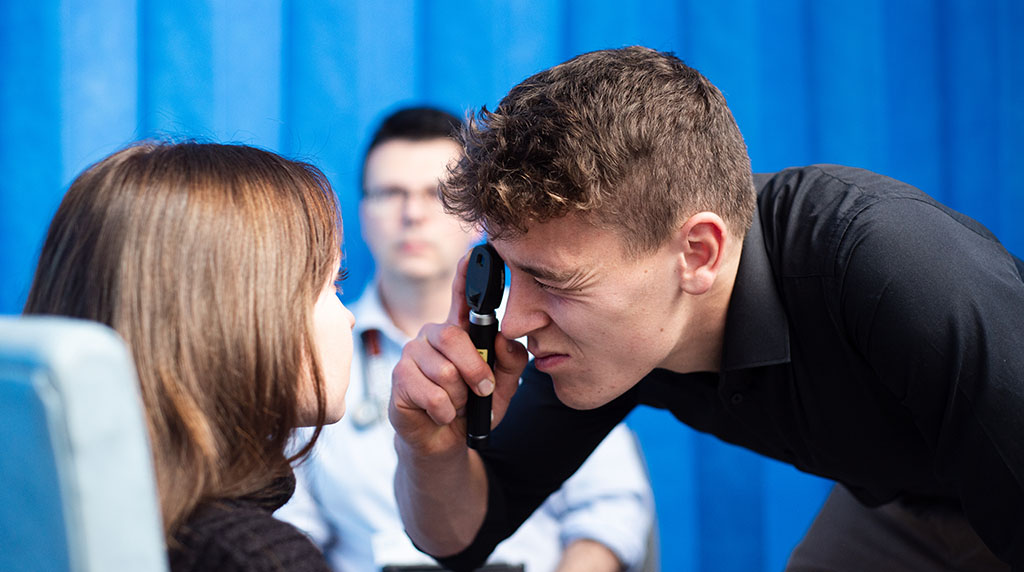Research is a vital part of the Kent and Medway Medical School vision and mission. The Kent and Medway region, in which we are based, is characterised by degrees of inequality that Public Health England has identified as amongst the worst in the UK. This has informed the strategic research priorities for KMMS.
Kent County presents a stark picture of health inequalities, primarily due to ‘coastal excess or effect’ across its numerous coastal and rural communities, which are typically more dependent on the immediate supporting community infrastructure and assets, such as transport and communication links, local shops and social activities. These are especially precarious due to the nature of these relatively isolated coastal and rural areas. Kent County is also home to pockets with high health inequalities in rural regions, with well described challenges in delivery of community services. The opportunity to conduct high-impact research with populations that suffer disproportionately adverse health and life outcomes, and for whom there are unique challenges to the provision of integrated and comprehensive health care due to their geographic location, is one of our key research priorities.
Indeed, we are leveraging our unique location and network to focus on rural and coastal medicine, inequities and disparities in health in relation to important disease areas. KMMS researchers are also involved in national and international studies. This research is always underpinned by multidirectional learning from work in other areas in the UK, the Global North and the Global South.
KMMS researchers have established a knowledge partnership to facilitate collaborative research between local NHS organisations, local authorities, academic and community partners. Through collaborative research with colleagues from the University of Kent and Canterbury Christ Church University, UK and international research centres, Kent healthcare providers, business and industry, policymakers and other external partners KMMS aims to become a regional hub for high-quality research, knowledge exchange, and capacity building in medical and clinical research.
All KMMS research is underpinned by strong community and public involvement which is integral to ensure our research is ethical, effective and appropriately oriented to the needs of people in Kent and Medway. KMMS researchers employ different creative and participatory methods to facilitate sustained and genuine engagement with local communities, dissolving knowledge hierarchies, and co-producing innovative health initiatives and interventions. People with lived experience, patients, community leaders, healthcare practitioners and policy makers are fully involved from the onset of KMMS research and voices, especially those voices who are often marginalized, are put central in KMMS research.
KMMS research team
To bring the KMMS research vision to life we started recruitment of outstanding researchers of national or international standing in the Autumn of 2021. The pioneering cohort of KMMS research staff includes research leaders who are internationally recognised for their interdisciplinary health research in the KMMS strategic research areas around mental health, global health , medical education and public engagement with research. KMMS research teams are supported by a growing cohort of NIHR Academic Clinical Fellows, postdoctoral researchers, PhD students and UK Specialist Foundation Programme doctors.
In keeping with the KMMS model of partnership to improve and contribute to the regional healthcare workforce, some of the KMMS research posts are partly funded by local NHS Trusts and include time spent in clinical practice, which has the added benefit of ensuring that our research is rooted in the healthcare needs of the region.
Medical student research
At KMMS, we are passionate about enabling our medical students to actively engage research that is focused on the key healthcare challenges for the Kent and Medway region, particularly the significant gap between life expectancy and healthy life expectancy. KMMS has an active medical education research group and offers opportunities for students to get involved in research can be found here.
Contact
Professor Sukhi Shergill is the Director of Research at KMMS.
For more information and enquiries about KMMS research, please contact researchoffice@kmms.ac.uk.
